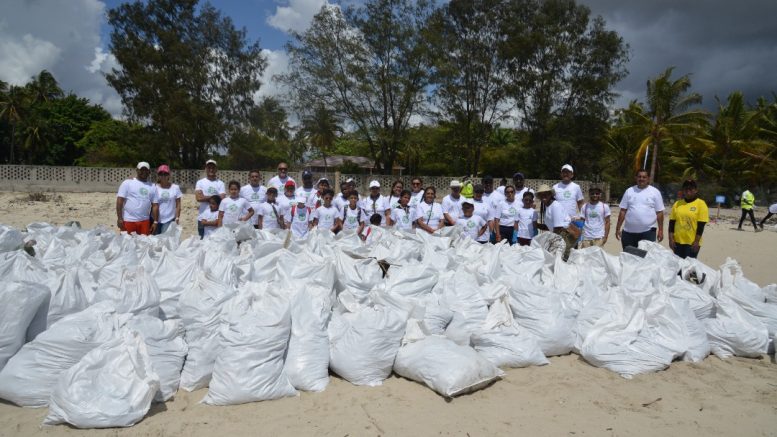This year, Global Ismaili CIVIC Day (GICD) was celebrated on the 25th of September across 7 regions in Tanzania and Zambia through 10 different initiatives. These were primarily focused on two themes, Climate Resilience and Health and Sanitation. One of the key focuses was to work with local stakeholders and organizations to enhance the lives of community members. Across the Tanzania and Zambia jurisdiction, GICD had 521 volunteers with 2,557 total service hours.
Dar es Salaam undertook 3 initiatives under the theme of climate action in collaboration with the Aga Khan Foundation (AKF) Tanzania and the Human Dignity and Environmental Care Foundation (HUDEFO). At Rainbow Beach in Kawe, Jamati members collected and sorted 8.2 tons of waste that had washed up on the shore. Meanwhile, at the Mjimwema Mangrove Forest in Kigamboni, youth volunteers planted 1,500 mangrove seedlings and saplings to sequester 400 tons of atmospheric carbon dioxide. Two weeks later, on October 9th, a small group of volunteers planted a microforest at the AKF offices that featured 350 trees and shrubs of over 20 species.
Some of the GICD initiatives focused on supporting schools and youth. For example, in Mwanza, volunteers planted 20 avocado trees at the Pamba Secondary School and donated an incinerator for female menstrual products. Lusaka also supported a school. Volunteers refurbished 3 classrooms at the Kalundu Primary School and worked on enhancing landscaping and greenery on the grounds.
Other regions also worked to create safe, vibrant environments for local community members. In Dodoma, Jamati members donated playscape equipment, concrete benches and solar lights to the Chako ni Chako public playground. They also planted 200 Ficus plants, 14 trees, 40 flowering plants and 40 bags of grass to create a lush green space. The Mbeya Jamat worked to revive the city center. They collected 3 tons of waste, planted 120 saplings and cleaned 3 roundabouts and city monuments.
Besides beautifying public spaces and enhancing climate resilience, access to healthcare and sanitation was an important goal for the Zanzibar and Morogoro Jamats. In Zanzibar, volunteers set up a health clinic that served 295 community members in the Tazari village. Through this, community members could track physical health parameters like blood sugar and pressure. The Jamat also worked to set up a borehole to provide villagers with easy access to water. In Morogoro, a small group of volunteers set out to aid the Multi Dome Relief Center orphanage. They planted a garden and donated a new water tank to provide those in the dormitories with water access.
Overall, there was a lot of enthusiasm and excitement to promote environmental stewardship and access to sanitation. Moving forward, the Tanzania and Zambia Jamats are committed to continuing these efforts and working alongside local groups to further empower local communities and enhance climate resilience.

